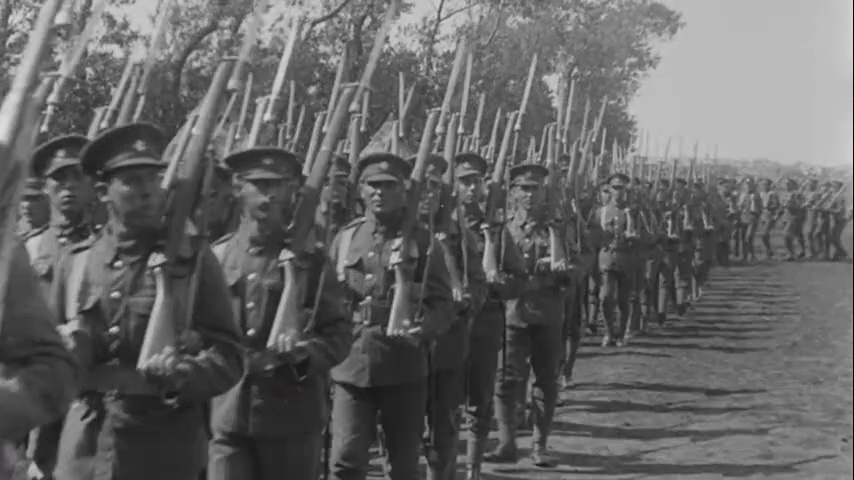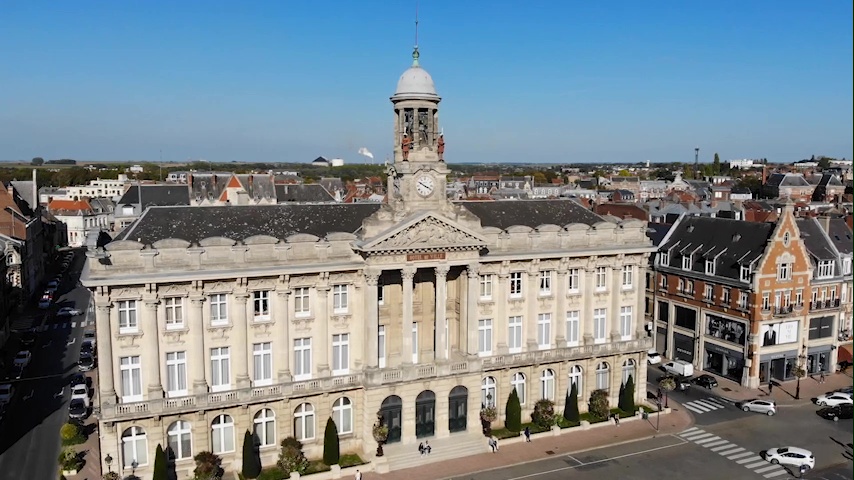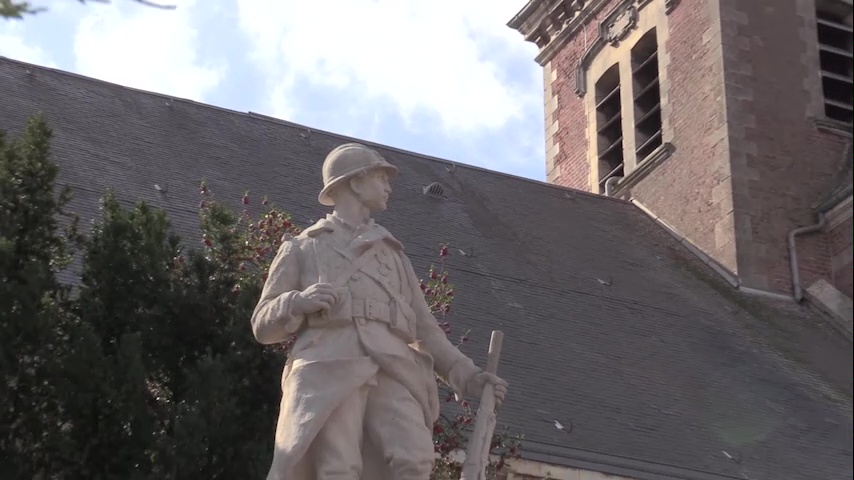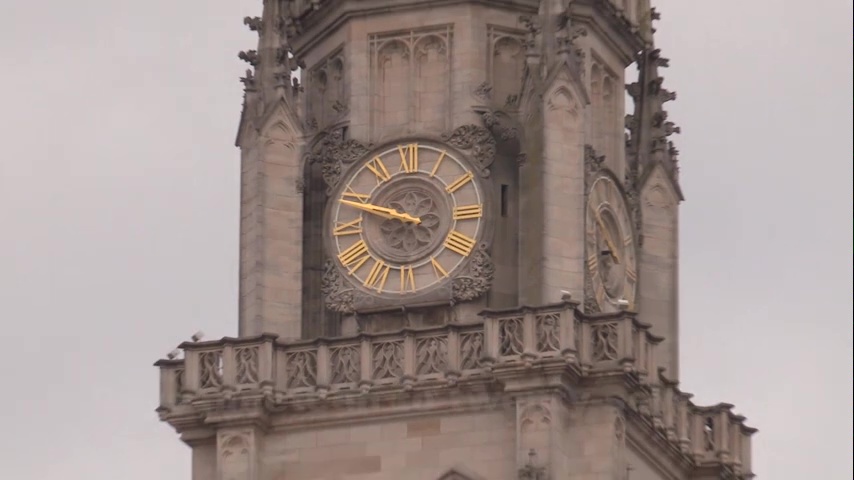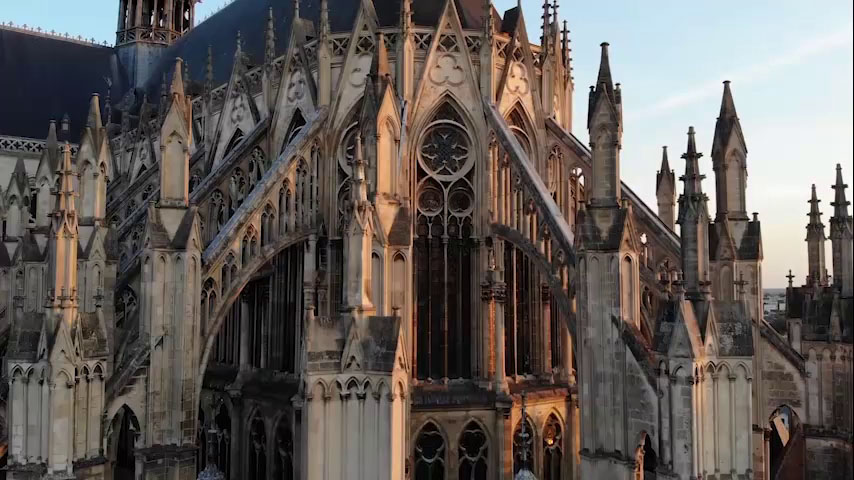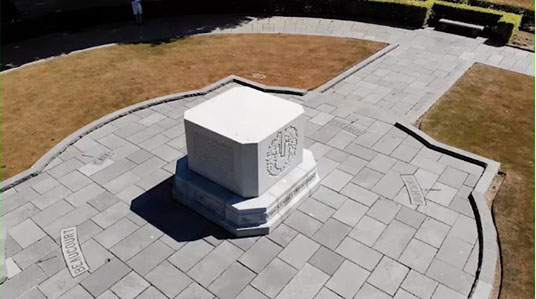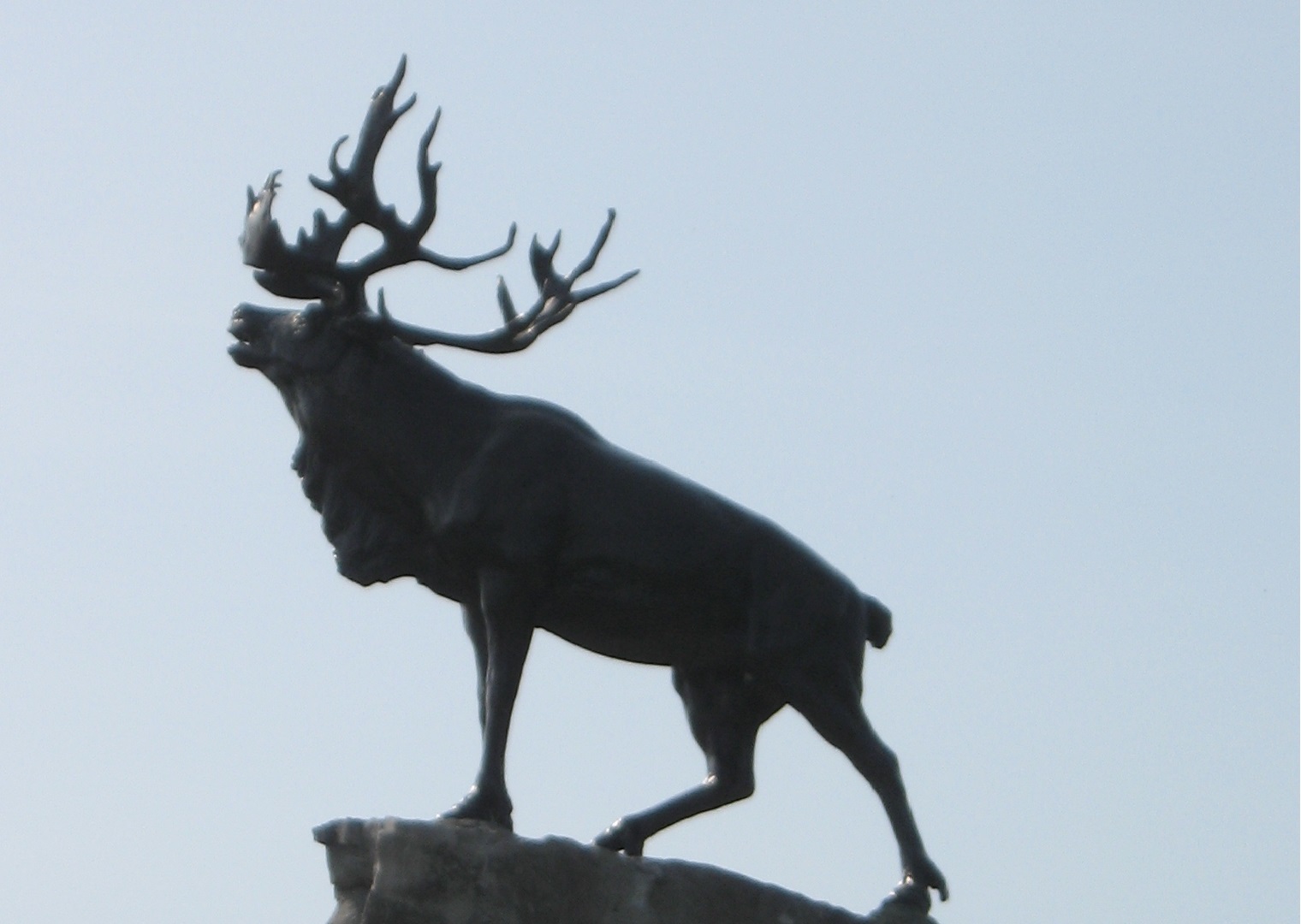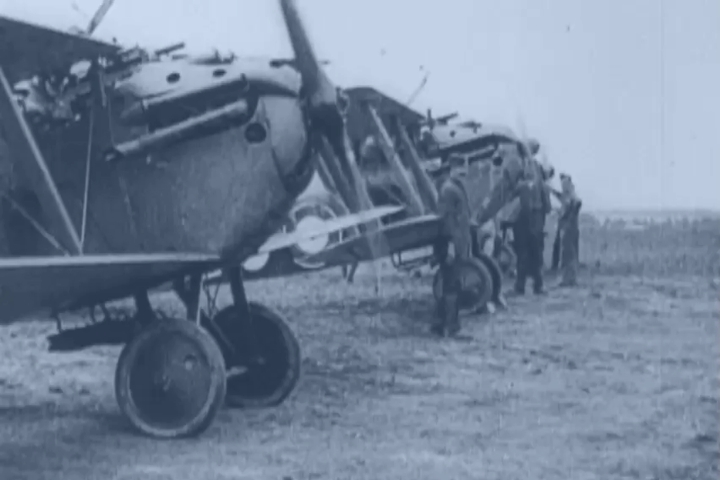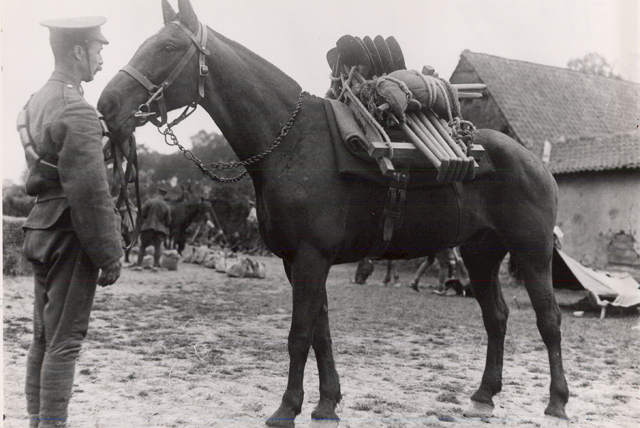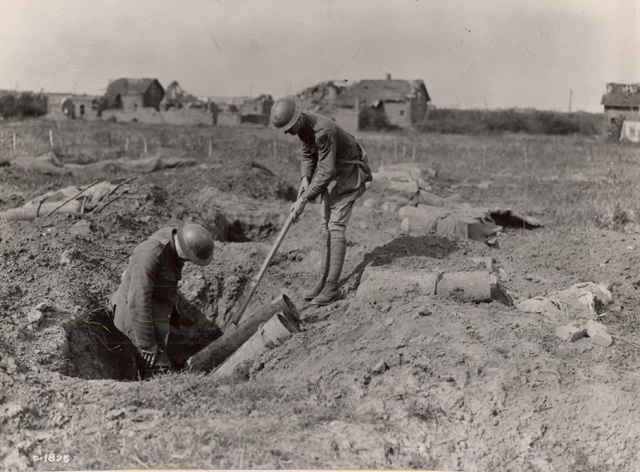Aviation
First World War
Aviation
Transcript
Newspaper clipping of The Montreal Daily Mail, motion of soldiers moving around
Silhouette of a man moving across the screen to the right three times and silhouette of an airplane
When war broke out in 1914, Canada had an Aviation Corps of three men and one plane.Airplane moving towards takeoff with people walking around on the grassy terrain
By the end of that same year, this first attempt at aAIrplane taking off!
national air force had… well… plummeted.AIrplane in sky giving off black smoke as it descends toward the ground circling many times
Airmen working with plane parts in factory
We tried again in 1916, but in 1918,Two women and men working with airplanes
Women working together on the airplane drawing white pieces of cloth over the wings
when the war ended, we still had no air force.A officer in uniform sits beside a dog, petting the dog
Faces of airmen in front of the plane's propeller
So how did we end up with so many pilots and flying aces?Airmen standing together smiling and having a chat
Well, many Canadians served with theA huge line of military personnel walking in formation with guns slung across their shoulders, young children and men standing with their backs to photo watching the crowd, wooden buildings in teh background
British Royal Flying Corps,An instructor gives insturction to five airmen who are sitting facing the front of the classroom with white charts of paper in front of them; logo on front board keeps changing
the Royal Naval Air Service and the RAF -Distant view of soldiers standing on hills looking over the trees and landscape of military personnel different types of formation spelling out the design of RAF
Flags flying and airplane soaring past
the Royal Air Force.Parade of airmen follow in formation inside a recruitment building
But in the beginning, they only recruited menSpinning graphic of a photo of three airmen standing in front of an airplane
with a valid pilot’s license and aviatorsMen in normal attire exercising and lifting their legs in a marching formation, aviation recruitment training
had to pay for their own training.Airmen running in sacks as part of excercise, recruitment training with stone buildings in the background
That didn’t fly long. Soon, more pilots wereGroup of airmen bent over in a circle formation running for exercise
Parade of airmen clothed in heavy jackets and proper attire marching towards a stone 3-storey building
needed than British and Canadian civilianSymbols circle the screen, airplanes fly by in the sky
training schools could supply.A group of airmen stand at attention and being their march
So in 1917 the Royal Flying Corps openedHuge wooden airplane with a great many airmen working on top and on ground using tarps on the side of the airplane
Airmen working at the propeller of the airplane
three training stations in Canada:Airmen look on taking notes as one instructor works on the propeller of the airplane
Instructor providing training to the airmen
Aerial view of Canadian base setup with canopy tents of equipment and airplanes
Borden, Deseronto and North Toronto.Map drawing of Camp Borden and map directions of Ottawa and Toronto
Aerial view of army trucks with military personnel travelling down the paved road, many onlookers as personnel pass by, people going off in every direction
In no time at all,Airmen spins the propeller of the airplane to get it started
Canada became one of the world’sAirplane taking off
leading training facilities for pilots.Airplane in air
Aerial view of airplane passing over the highways and open green landscape
Back view of pilot sitting in flight in his cockpit
Five airplanes fly in formation
Muddy terrain within the training camp, buildings in the distance
Plane flying over the buildings within the training compound
Airmen cheering and waving their caps, flag flying
When the United-States joined the war,Military personnel walking around training base with canopy tents and aircraft equipment all around them
Canada lost two of these facilities toAirmen standing alongside the train track, train can by seen on track
Fort Worth, Texas,Airmen in uniform standing in front of train and on its' rooftop
Train travelling on the mountainous countryside with airmen laying on the roof as trains goes by
but in early 1918, the Royal Air ForceAir crew transporting an airplane onto the back of transport truck
Transport truck leaving with airplane on back while air crew stand by
returned to Canada and investedMilitary personnel fires off rounds of ammunition standing in front of a wooden fence; snow on the ground
in even more advanced training units.Front and back part of the airplanes
Metal constructed equipment firing artillery from the moutainside, blasts of smoke in the distance
Tow airmen firing ammunition under canopy with sandbags behind them
At the end of the war,Air crew pushing airplane
after only twenty-one months in Canada,Air crew watch as airplane takes off
the RAF had recruited over 16,000 personnel,Two airplanes circling on ground before takeoff
Split screen of lady on right tele-typing and gentleman on left with radio communication equipment
Women assisting with plane maintenance
Air Force pilots marching in formation
and trained more than 3,000 pilots.Air Force personnel clothed in winter wear walk through snow in front of a building
Even though the life expectancy ofAirplane flying in sky
a wartime pilot was about three weeks,Airplane explosion on ground with clouds of black smoke coming from teh burned wreckage
these Canadians served with skill and gut.Airplanes doing maneuvers in the sky
Four Air Force crew pose in front of camp
Of the 27 allied pilots with more than 30 combat victories,Graphic photo spins around showing an officer having conversation with pilot while sitting in airplane
Graphic photo of Albert Desbrisay Carter appears on screen - 28 victories
10 were Canadians, and 3 won theGraphic photo of Frank Granger Quigley appears on screen - 33 victories
Commonwealth’s highest award of valour,Graphic photos appear on screen sliding left to right - WIlliam Barker, William Bishop and Alan MacLeod
the Victoria Cross.Graphic photo of Victoria Cross
Description
Narration on archival images that evoke the upheavals that marked the recruitment and training of Canadian airmen during the First World War and the importance of Canadians in the success of the Royal Air Force (RAF).
Meta Data
- Medium:
- Video
- Owner:
- Veterans Affairs Canada
- Recorded:
- November 4, 2015
- Duration:
- 2:06
Related Videos
- Date modified:



.png)
